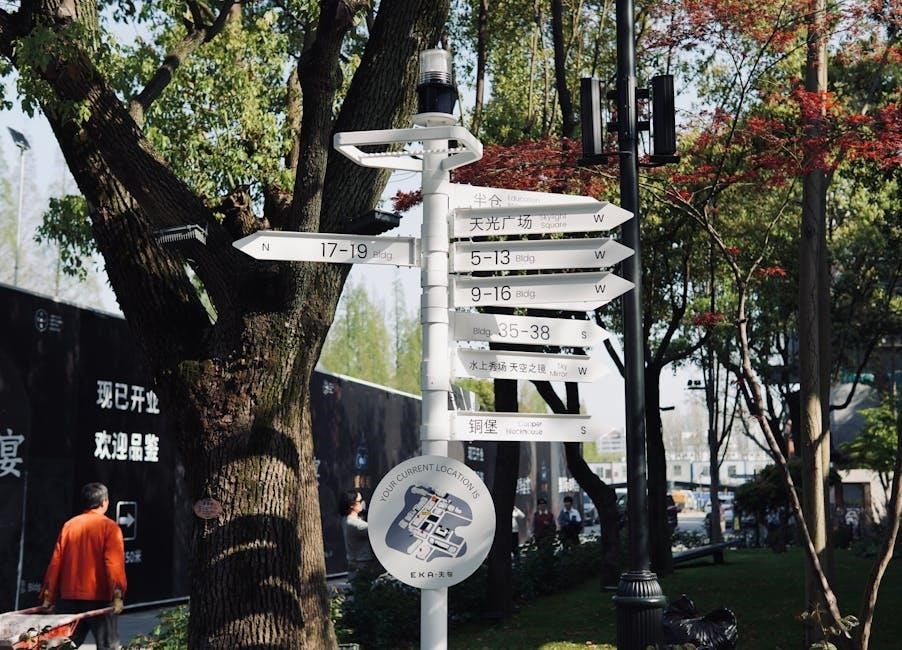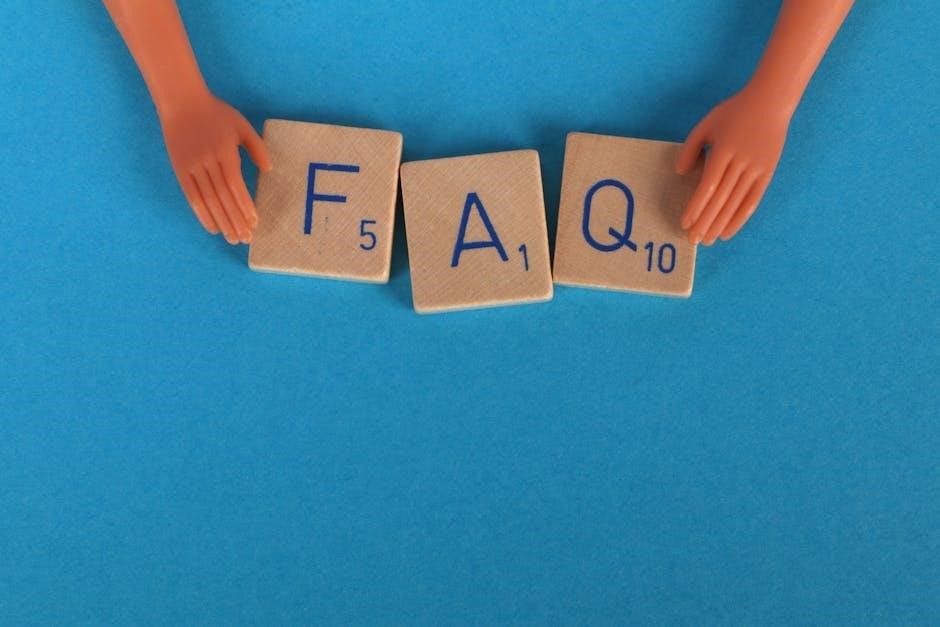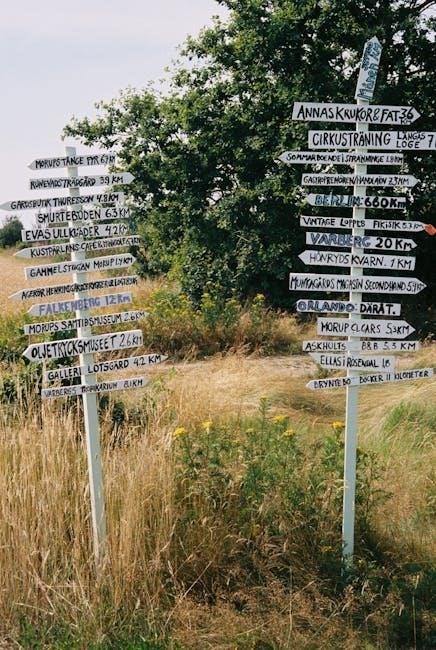Preparing for an NCO board requires comprehensive knowledge. Expect questions on regulations like AR 600-8-19 regarding promotions. Leadership scenarios, ethical dilemmas, and soldier welfare are common. Understanding training and development, current events, and the chain of command is crucial. Reciting the NCO Creed, demonstrating physical fitness knowledge, and showcasing weapons and first aid proficiency are vital. Mastery of drill and ceremony, along with military justice basics, completes the preparation.
General Knowledge Questions
NCO board general knowledge questions often assess a candidate’s understanding of Army traditions, history, and current affairs. You might be asked about significant figures like CSM Gary Litrell or SGT Patrick Glass. Knowing the birthdate of the NCO Corps is essential. Expect questions about Army values, leadership principles, and the importance of setting an example.
Understanding unit mission essential tasks, as outlined in relevant Army publications, is key. Familiarity with uniform regulations and proper etiquette, such as saluting officers, is expected. Be prepared to discuss current events impacting the military and demonstrate awareness of national and international issues. Questions may also cover the roles and responsibilities of NCOs in maintaining discipline, promoting soldier welfare, and fostering a positive command climate.

Demonstrating knowledge of Army programs, resources, and support services for soldiers and their families is crucial. Candidates should be able to articulate the importance of continuous learning, professional development, and mentorship within the NCO corps. Questions might explore your understanding of equal opportunity policies and your commitment to treating all soldiers with dignity and respect.
Army Regulations and Policies
NCO board questions on Army regulations and policies aim to evaluate your ability to interpret and apply official guidance. Expect inquiries about AR 600-8-19, covering enlisted promotions and reductions. Understand the criteria for recommending soldiers for promotion, including performance, attitude, leadership, and potential. Be prepared to define inefficiency and its consequences.
Questions may delve into equal opportunity policies, as outlined in relevant regulations. Familiarity with regulations concerning soldier conduct, uniform standards, and disciplinary actions is crucial. You should be able to explain the purpose and importance of various Army programs and initiatives. Understanding the chain of command and proper reporting procedures is essential.
Be prepared to discuss regulations related to soldier welfare, including financial assistance, healthcare, and family support. You might be asked about policies regarding substance abuse, sexual harassment, and discrimination. Demonstrating knowledge of Army safety regulations and risk management procedures is vital. Candidates should be able to articulate the importance of adhering to regulations and policies to maintain order, discipline, and professionalism within the Army.
Understanding the legal framework governing military justice and the rights of soldiers is also important.
Leadership Scenarios
Leadership scenarios presented during NCO boards assess your decision-making and problem-solving abilities in realistic situations. These questions gauge your capacity to lead soldiers effectively, maintain discipline, and uphold Army values.
Expect scenarios involving conflict resolution, team building, and performance management. You might face situations where a soldier is underperforming, displaying misconduct, or experiencing personal difficulties. Be prepared to articulate how you would address these issues while adhering to regulations and demonstrating empathy.

Scenarios may also involve ethical dilemmas, requiring you to make tough choices based on moral principles and Army ethics. Consider how you would handle situations where you witness a violation of regulations or observe unethical behavior. Your responses should demonstrate integrity, sound judgment, and a commitment to doing what is right, even when it is difficult.
Furthermore, anticipate scenarios that test your ability to motivate and inspire soldiers, especially in challenging environments. Think about how you would foster a positive command climate, build trust within your team, and promote professional development. Scenarios may also assess your ability to adapt to changing circumstances, make quick decisions under pressure, and effectively communicate with both superiors and subordinates.
Remember to apply the Army leadership principles and demonstrate a genuine concern for the well-being of your soldiers in your responses.
Ethical Dilemmas
Ethical dilemmas presented during an NCO board evaluate your moral compass and decision-making skills when faced with conflicting values or principles. These scenarios often lack clear-cut solutions, requiring you to analyze the situation, weigh the potential consequences, and make a reasoned judgment aligned with Army values and regulations.
Expect questions that challenge your integrity, fairness, and commitment to the welfare of your soldiers. You might encounter scenarios involving conflicts of interest, misuse of resources, or violations of trust. Consider how you would respond if you witnessed a fellow soldier engaging in unethical behavior, or if you were asked to compromise your own values for the sake of expediency.
Your responses should demonstrate a strong understanding of the Army’s ethical framework, including the seven Army values: Loyalty, Duty, Respect, Selfless Service, Honor, Integrity, and Personal Courage. Explain how you would apply these values to the specific situation, and justify your decision-making process. Be prepared to articulate the potential impact of your actions on your soldiers, your unit, and the Army as a whole.
Remember that there is often no easy answer to ethical dilemmas. The board is looking for evidence of sound judgment, critical thinking, and a commitment to doing what is right, even when it is difficult. Be prepared to defend your position and explain why you believe it is the most ethical course of action.
Soldier Welfare
Questions about Soldier Welfare at an NCO board assess your understanding of your responsibilities toward the well-being of your subordinates. Your responses should demonstrate a genuine concern for their physical, mental, and emotional health, as well as a commitment to creating a positive and supportive environment.
Be prepared to discuss your role in identifying and addressing potential issues such as stress, fatigue, financial difficulties, and family problems. How would you support a soldier struggling with personal issues, or facing challenges in their military career? Familiarize yourself with available resources, such as Army Community Service (ACS), Behavioral Health, and financial counseling services.
The board may ask about your approach to preventing problems before they arise. What steps do you take to promote a healthy work-life balance for your soldiers, and to foster a sense of camaraderie and teamwork within your unit? How do you ensure that your soldiers have access to necessary resources and support, and that their concerns are heard and addressed?
Demonstrate your knowledge of relevant Army policies and regulations related to Soldier Welfare, such as those concerning leave, pay, and benefits. Explain how you would advocate for your soldiers’ needs and ensure that they are treated fairly and with respect. Your answers should reflect a genuine commitment to putting your soldiers first, and to creating a culture of care and support within your unit. Show that you understand that a soldier’s well being is paramount to mission success.

Training and Development
NCO board questions on Training and Development aim to evaluate your understanding of the Army’s approach to preparing Soldiers for current and future challenges. Be ready to discuss the principles of effective training, the importance of individual and collective training, and your role in ensuring that Soldiers receive the necessary skills and knowledge to perform their duties.

Expect questions about the Army’s training management cycle, including planning, preparation, execution, and assessment. How do you identify training needs within your unit? How do you develop and implement training plans that are aligned with the unit’s mission and objectives? How do you assess the effectiveness of training and make adjustments as needed?
The board may also ask about your commitment to your own professional development and the development of your subordinates. What steps do you take to stay current on the latest Army doctrine, tactics, and technologies? How do you mentor and coach Soldiers to help them reach their full potential? How do you create opportunities for Soldiers to attend professional military education courses and other developmental programs?
Demonstrate your knowledge of available training resources, such as the Army Training Network (ATN), the Digital Training Management System (DTMS), and the Combined Arms Training Strategy (CATS). Explain how you would use these resources to plan, prepare, and execute effective training exercises. Your answers should reflect a commitment to lifelong learning and a dedication to ensuring that Soldiers are well-trained and ready to meet any challenge. Show that you know the importance of a well-trained and confident Soldier.
Current Events

NCO board questions concerning Current Events will assess your awareness of significant national and international happenings. You must demonstrate a working knowledge of events shaping the geopolitical landscape and understand their potential impact on the Army and its mission. Stay informed through reliable news sources, avoiding biased or unverified information.
Expect questions regarding ongoing military operations, international relations, and domestic policy changes. Be prepared to discuss the implications of these events on Soldiers, their families, and the Army as a whole. You should be able to articulate how current events might influence unit readiness, deployment strategies, and overall mission objectives.
The board aims to evaluate your ability to analyze complex situations and form well-reasoned opinions. Avoid simply reciting headlines; instead, demonstrate critical thinking and an understanding of the underlying issues. Consider the perspectives of different stakeholders and the potential consequences of various courses of action.
Furthermore, be ready to discuss the Army’s role in addressing current challenges, both at home and abroad. How does the Army contribute to national security and global stability? What are the ethical considerations involved in military operations? How can NCOs effectively communicate the Army’s mission and values to the public?
Your responses should reflect intellectual curiosity, a commitment to staying informed, and the ability to connect current events to the Army’s broader mission. Demonstrate you’re not only informed but also thoughtful about the world around you.
Chain of Command
Questions about the Chain of Command on an NCO board are designed to evaluate your understanding of authority, responsibility, and communication flow within the Army. You must demonstrate a clear grasp of the hierarchical structure and the roles of key leaders at different levels. This knowledge is fundamental to effective leadership and mission accomplishment.
Expect questions about the specific individuals currently holding positions in your chain of command, from your immediate supervisor to the Sergeant Major of the Army. Knowing their names, ranks, and responsibilities is crucial. You should also be familiar with the general structure of the Army’s command hierarchy, including the relationships between different units and organizations.
Furthermore, you should understand the purpose and importance of following the chain of command. It ensures that orders are properly disseminated, that accountability is maintained, and that communication flows efficiently. Bypassing the chain of command can lead to confusion, inefficiency, and even mission failure.
The board may present scenarios that require you to identify the appropriate person to contact for a specific issue or to determine the correct course of action in a given situation. Your responses should demonstrate your ability to navigate the chain of command effectively and to respect the authority of your superiors.
Beyond knowing the structure, you should articulate why the chain of command is vital. Discuss how it fosters discipline, promotes teamwork, and contributes to the overall effectiveness of the Army. Understand that it’s more than just a list of names; it’s a system that enables the Army to operate effectively.
NCO Creed
The NCO Creed is the bedrock of the Noncommissioned Officer Corps, and demonstrating a thorough understanding of it is essential for any aspiring leader. Expect the board to assess your knowledge not only of the words themselves but also of the principles and values it embodies. Simply reciting the creed is insufficient; you must articulate its meaning and relevance to your daily duties.
Be prepared to discuss each line of the creed, explaining what it signifies and how it guides your actions as an NCO. The creed emphasizes competence, caring for soldiers, and upholding the highest standards of conduct. It serves as a moral compass, reminding NCOs of their responsibilities and obligations;
The board may ask you to relate specific lines of the creed to real-world scenarios, demonstrating how you would apply its principles in challenging situations. For example, you might be asked how you would uphold the line “I will not use my grade or position to attain pleasure, profit, or personal safety” in a situation involving potential ethical compromise.
Furthermore, understand the historical context of the NCO Creed. Recognize that it represents a legacy of leadership, professionalism, and selfless service. Embodying these qualities are what separates a good NCO from a great one.
The NCO Creed is more than just words. It’s a way of life, and your commitment to its principles will be evident in your actions and decisions. The board is looking for NCOs who not only know the creed but also live it every day.
Physical Fitness
Physical fitness is a cornerstone of military readiness and leadership. NCOs are expected to embody and promote a culture of health and wellness. Prepare to address questions regarding physical training (PT) programs, the Army Physical Fitness Test (APFT) or the Army Combat Fitness Test (ACFT), and the importance of maintaining personal fitness standards.
The board will likely inquire about your understanding of the components of fitness: cardiovascular endurance, muscular strength, and flexibility. You should be able to articulate how these components contribute to overall soldier readiness and resilience.
Expect questions on designing and implementing effective PT programs that cater to diverse fitness levels and mission requirements. Highlight your knowledge of proper warm-up and cool-down techniques, injury prevention strategies, and the principles of progressive overload.
Be prepared to discuss the APFT or ACFT standards and scoring criteria. You should be able to explain the events, performance expectations, and the importance of accurate record-keeping. The board may also ask about remedial PT programs for soldiers who fail to meet the standards.
Beyond individual fitness, the board may explore your ability to motivate and inspire soldiers to prioritize their physical well-being. Emphasize the role of the NCO as a fitness role model and advocate for healthy lifestyles. Share your personal experiences and strategies for maintaining a high level of fitness.
Finally, be familiar with Army regulations pertaining to physical fitness, such as those addressing body composition and weight management. A comprehensive understanding of these policies demonstrates your commitment to enforcing standards and promoting a fit and ready force.
Weapons Knowledge
A solid understanding of weapons systems is paramount for every NCO, regardless of their specific military occupational specialty. The board will assess your knowledge of various weapons platforms, their capabilities, and their proper employment. Expect questions about the M4 carbine, M249 Squad Automatic Weapon (SAW), and other common small arms used in the Army inventory.

You should be thoroughly familiar with the characteristics, components, and operation of these weapons. Be prepared to discuss their effective ranges, rates of fire, and ammunition types. A strong grasp of weapons maintenance procedures, including cleaning, lubrication, and inspection, is essential.
The board may also delve into your understanding of weapons safety rules and regulations. You must be able to articulate the four rules of firearm safety and demonstrate your commitment to enforcing them at all times. Knowledge of proper weapons handling techniques, both in training and combat environments, is crucial.
Beyond individual weapons proficiency, the board may explore your understanding of crew-served weapons and their role in supporting maneuver operations. You should be able to identify different types of crew-served weapons, their capabilities, and their integration into the overall tactical plan.
Questions about range operations and marksmanship training are also likely. Be prepared to discuss the different phases of marksmanship training, the importance of proper shooting techniques, and the methods for diagnosing and correcting common shooting errors. Understanding the fundamentals of ballistics and fire control is beneficial.
Finally, stay updated on emerging weapons technologies and their potential impact on future warfare. Demonstrating a proactive approach to learning about new weapons systems showcases your commitment to professional development and your dedication to maintaining a competitive edge.
First Aid
Proficiency in first aid is a critical skill for all soldiers, and NCOs are expected to be experts in providing immediate medical care in emergency situations. The NCO board will assess your knowledge of basic life-saving techniques and your ability to apply them effectively in a combat or training environment.
Expect questions about the principles of Tactical Combat Casualty Care (TC3), including care under fire, tactical field care, and casualty evacuation. You should be familiar with the MARCH algorithm (Massive Hemorrhage, Airway, Respiration, Circulation, Hypothermia) and its application in prioritizing treatment.
Be prepared to demonstrate your knowledge of controlling bleeding using tourniquets, pressure dressings, and hemostatic agents. You should understand the proper application of these techniques and the potential complications associated with their use.
The board may also inquire about your ability to manage airway obstructions, perform CPR, and treat chest wounds. You should be familiar with the signs and symptoms of various medical conditions, such as shock, fractures, and burns, and the appropriate first aid measures for each.
Knowledge of the principles of splinting and immobilization is essential for treating musculoskeletal injuries. You should be able to improvise splints using available materials and understand the importance of preventing further injury during transport.
Furthermore, you should be knowledgeable about the prevention of heat and cold injuries, including dehydration, heatstroke, hypothermia, and frostbite. Be prepared to discuss the risk factors for these conditions and the steps that can be taken to mitigate them.
Finally, stay updated on the latest advancements in first aid techniques and equipment. Demonstrating a commitment to continuous learning in this area will showcase your dedication to the well-being of your soldiers.
Drill and Ceremony
Drill and ceremony is more than just marching; it’s a fundamental aspect of military discipline, precision, and teamwork. As an NCO, you’re expected to be a master of these skills, capable of leading and instructing soldiers in various formations and movements. Expect questions on the purpose and importance of drill and ceremony in fostering unit cohesion and esprit de corps.
You should be thoroughly familiar with the TC 3-21.5, Drill and Ceremonies manual, and be prepared to answer questions on specific commands, movements, and formations. The board will likely test your knowledge of individual drill, including attention, parade rest, and facing movements. They may also ask about squad and platoon drill, such as forming a line, column, and echelon.
Understanding the proper procedures for conducting ceremonies, such as parades, reviews, and honor guards, is crucial. You should know the sequence of events, the roles of key personnel, and the appropriate etiquette for each type of ceremony.
Be prepared to demonstrate your ability to give clear and concise commands, using the correct tone and cadence. Practice your voice projection and ensure that your commands are easily understood by soldiers in formation.

The board may also ask about the history and traditions associated with drill and ceremony. Understanding the significance of these practices can help you instill a sense of pride and professionalism in your soldiers.
Furthermore, you should be able to identify and correct common mistakes made by soldiers during drill and ceremony. This requires a keen eye for detail and a thorough understanding of the proper techniques.
Mastering drill and ceremony demonstrates your commitment to excellence and your ability to lead by example. It’s a skill that will serve you well throughout your career as an NCO.
Military Justice
Understanding military justice is paramount for NCOs. It ensures fairness and discipline within the ranks. Expect questions on the Uniform Code of Military Justice (UCMJ) and its purpose. You should know the different types of offenses and the potential punishments associated with them. Familiarize yourself with the rights of the accused and the procedures for conducting investigations.
The board may ask about your role in maintaining good order and discipline. This includes preventing misconduct, reporting suspected violations, and ensuring that soldiers are aware of their responsibilities under the UCMJ. You should be able to explain the difference between non-judicial punishment (Article 15) and court-martial proceedings.
Understanding the concept of command authority is crucial. You should know when you have the authority to take action and when you need to involve higher authorities. Be prepared to discuss the importance of due process and the presumption of innocence.

The board may present you with hypothetical scenarios involving potential UCMJ violations. You should be able to analyze the situation, identify the relevant offenses, and determine the appropriate course of action. This demonstrates your ability to apply your knowledge of military justice in real-world situations.
Furthermore, you should be aware of the resources available to soldiers who are accused of violating the UCMJ. This includes legal counsel and the opportunity to present evidence in their defense.
Your understanding of military justice reflects your commitment to upholding the law and ensuring that all soldiers are treated fairly. It’s a critical aspect of your responsibilities as an NCO.
Remember, knowledge of the UCMJ is not just about knowing the rules; it’s about understanding the principles of justice and fairness that underpin the military legal system.


Leave a Reply